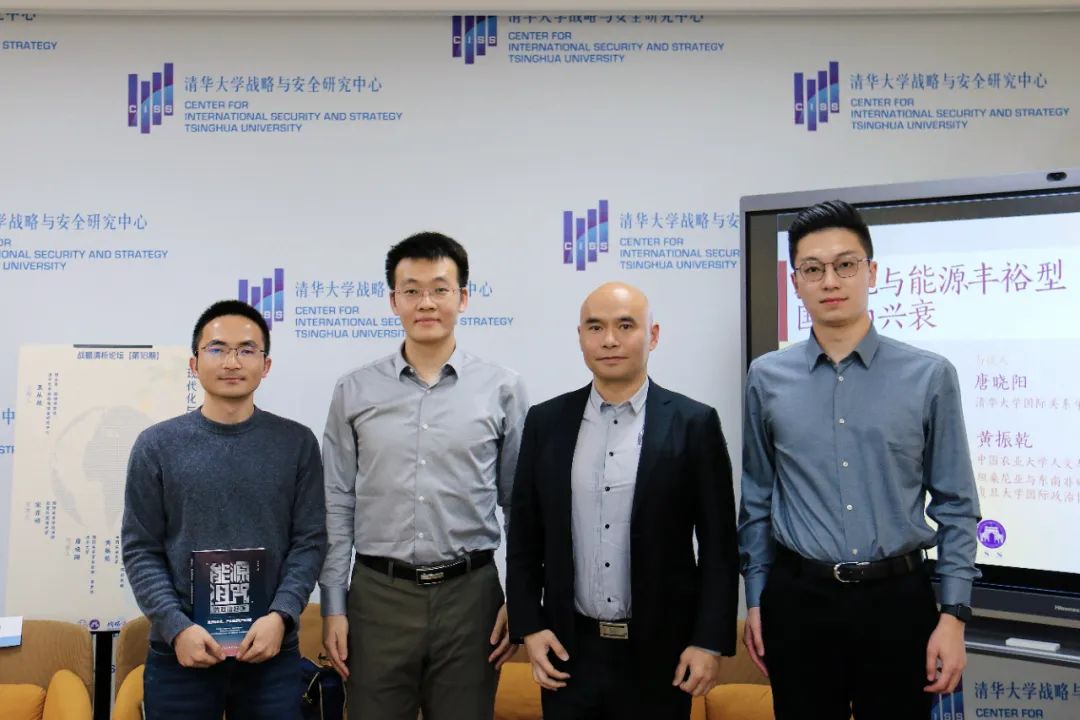On March 28, 2025, the 18th StratFocus Forum of the Center for International Security and Strategy (CISS) of Tsinghua University themed “Modernization and the Rise and Fall of Energy-Abundant States” was held. The keynote speaker was Song Yiming, Lecturer at the School of International Relations and Diplomacy at Beijing Foreign Studies University and Director of the Department of Diplomacy. The forum was moderated by Wang Congyue, Postdoc Fellow, Shuimu Tsinghua scholar of CISS, Tsinghua University.
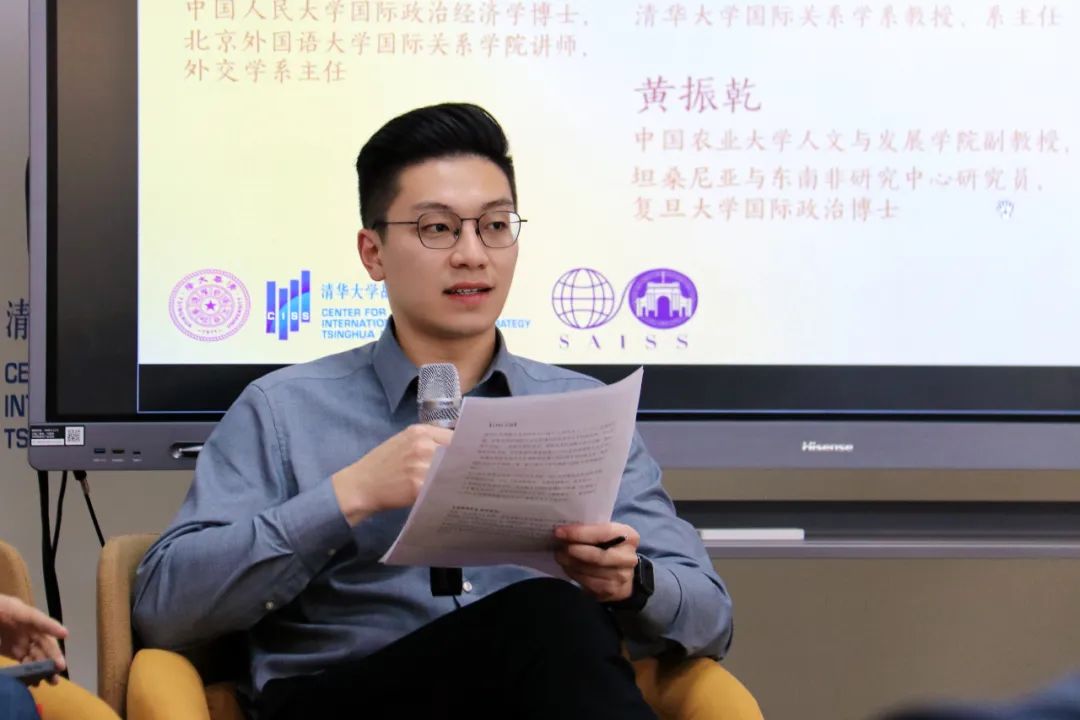
This session adopted modernization theory as an analytical framework, focusing on industrial alliances and property rights systems as key factors. It explored how energy-abundant states develop path dependence on their energy industries and provided an in-depth political-economic analysis of the formation and mechanisms of the "resource curse."
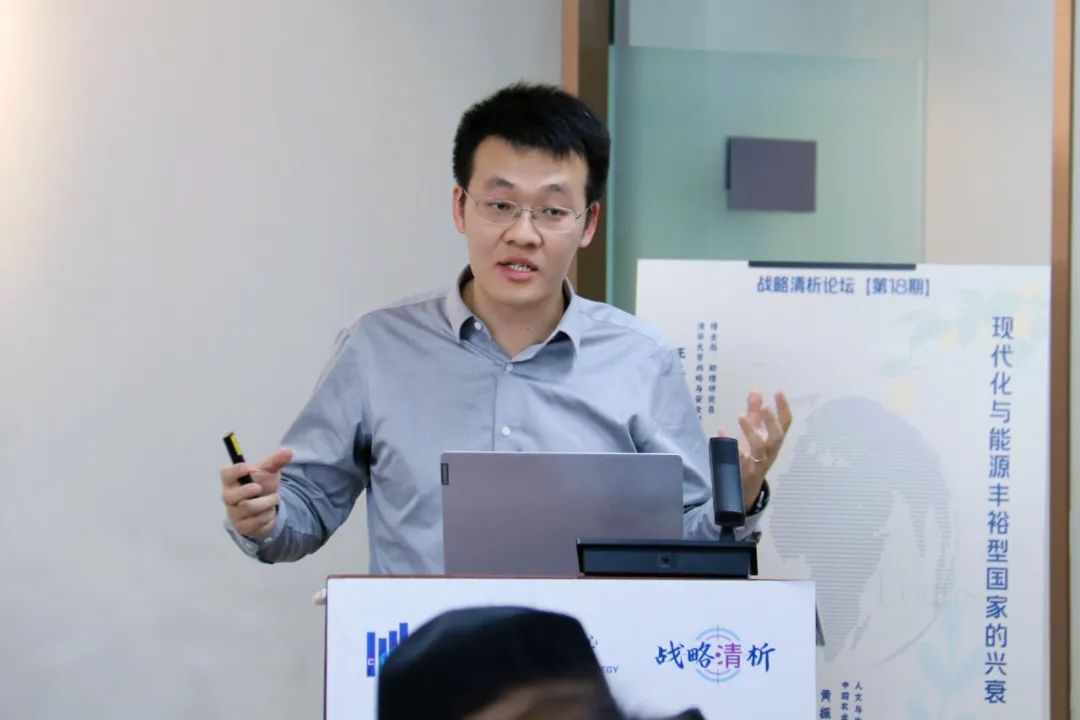
In the lecture, Song Yiming analyzed the causes of the "resource curse." He pointed out that resource-rich countries commonly face sluggish economic growth—a phenomenon rooted not in the resources themselves but in factors such as mono-industrial structure, excessive fiscal reliance on energy industries, and distorted incentive policies. He emphasized that the "starting point of modernization" is the critical variable determining whether resource dependence evolves into an economic growth trap.Song Yiming proposed a three-tier analytical framework—"Starting Point of Modernization-Industrial Alliance-Property Rights System"—to explain mechanisms like "taxation entrapment","subsidy differentiation" and “interest exchange.” His empirical study of longitudinal data from 39 countries validated the "resource curse" hypothesis, advancing the political economy of resources as a research agenda. Unlike existing literature that offers single-mechanism explanations, this study seeks a more comprehensive understanding of the "resource curse" by considering historical conditions and institutional structures. Song also outlined a future research agenda for "resource political economy," expanding theoretical perspectives on institutional transformation and global governance.
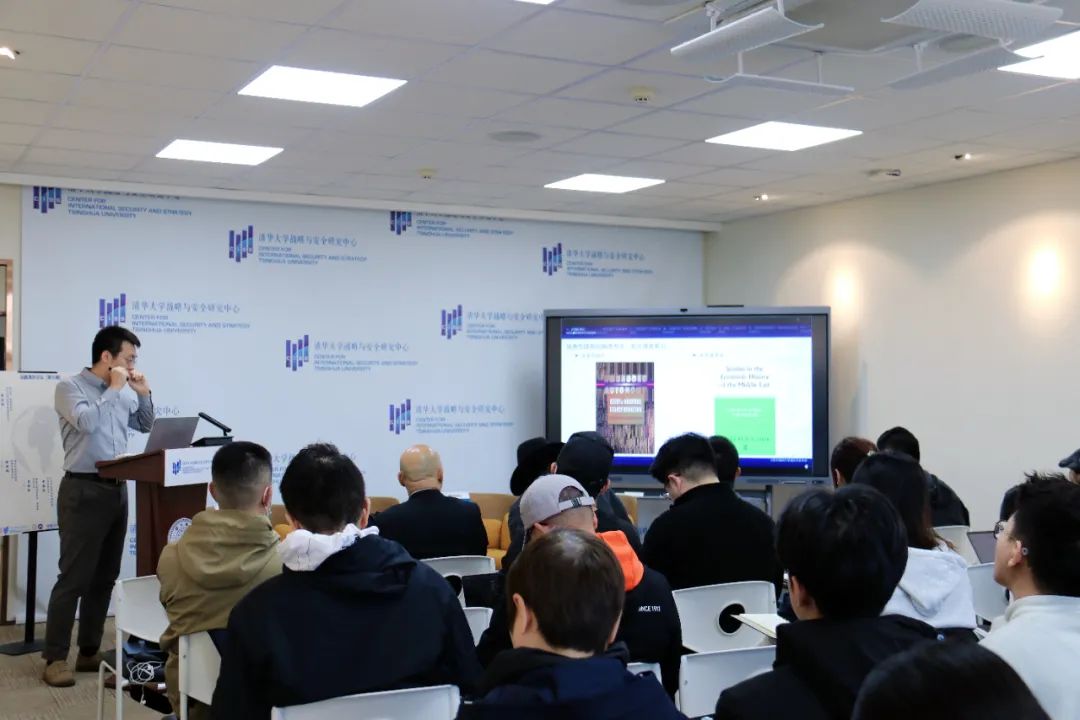
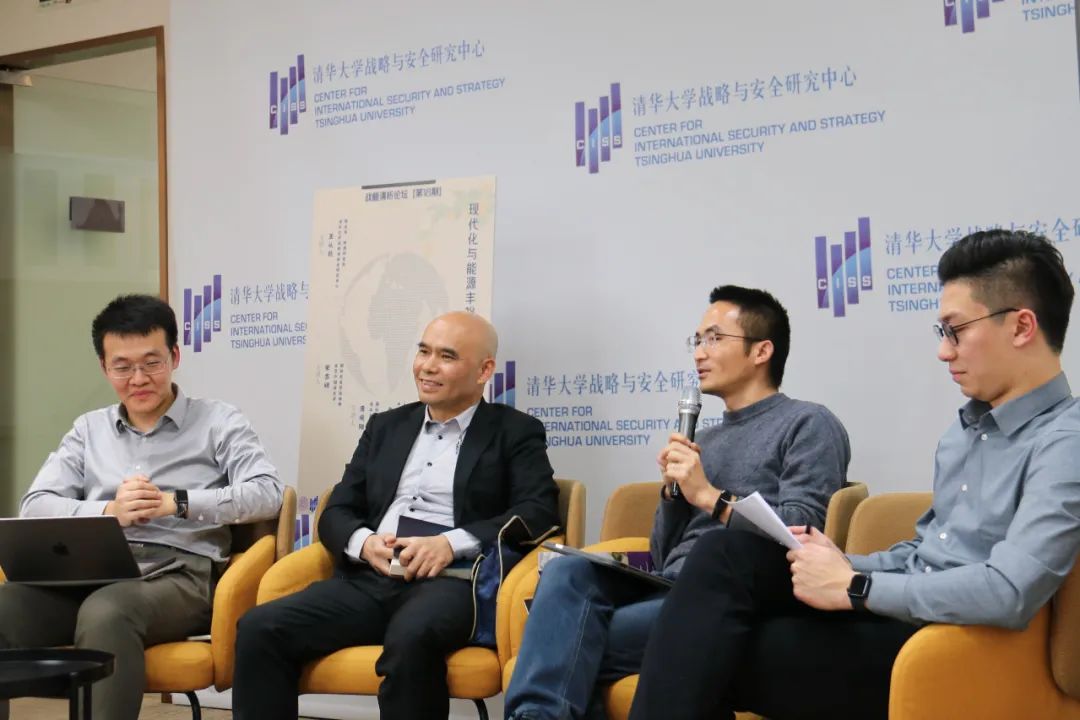
During the discussion session, Tang Xiaoyang, Professor and Director of the Department of International Relations at Tsinghua University and a distinguished expert of the China Forum at CISS, noted that 19th-century industrialized nations avoided the "resource trap" due to the "temporal and spatial synchronization" of resource exploitation and manufacturing development. In contrast, today’s international trade division of labor exacerbates industrial rigidity in resource-exporting countries.Huang Zhenqian, Associate Professor at the College of Humanities and Development Studies at China Agricultural University, highlighted that different types of resources have distinct impacts on governance. Highly organized resources like oil and gas depend more on state capacity, while scattered mineral resources pose greater challenges on governance. He suggested future research should refine the analysis of interactions between resource types and institutions while exploring theoretical shifts brought by new energy.
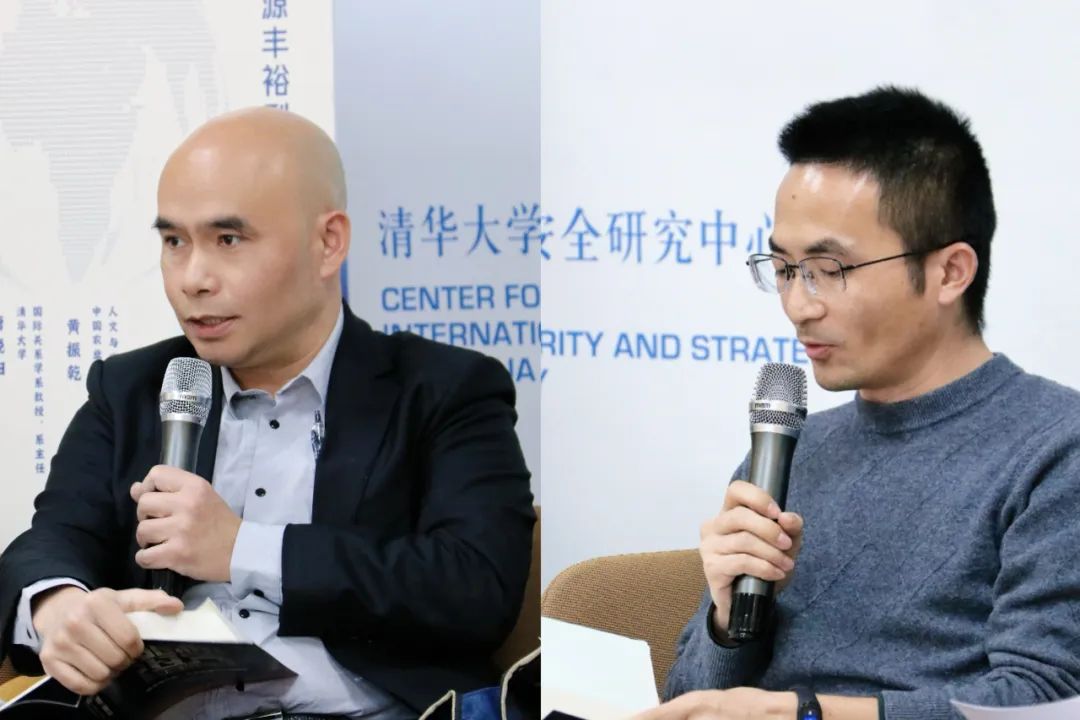
In the Q&A segment, the audience raised questions on topics such as the endogeneity of the "starting point of modernization" variable and the varying institutional effects of different resource types. The speakers responded in detail, engaging in deeper exchanges with attendees.
The forum concluded with closing remarks by moderator Wang Congyue.
